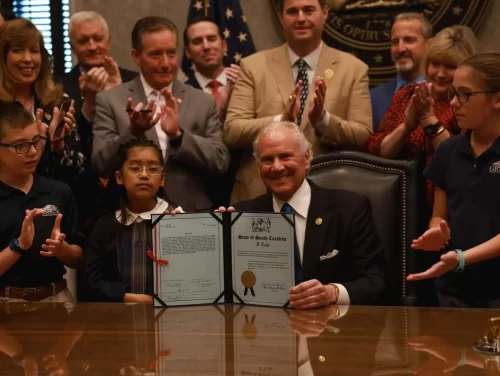South Carolina education scholarships open
Palmetto Promise President Wendy Damron is quoted in this article from The Center Square on South Carolina’s new ESA program.
(The Center Square) — South Carolina is accepting applications for a new education scholarship that proponents say is the future of education in the state.
Last year, state lawmakers passed S.39, the Educational Scholarship Trust Fund, similar to the Education Scholarship Account programs popular in states across the country. The 2024-25 application process opened earlier this month and runs until March 15.
Under the measure, eligible students — state residents with “a statement of Medicaid eligibility” — can receive up to $6,000 in scholarships. The money can help cover instructional materials, tutoring, computer hardware, assessments, transportation, tuition and fees.
“The passage of Education Scholarship Accounts marks a significant victory for parents, students, and the future of education in South Carolina. However, the next step is vital,” Wendy Damron, president of the Palmetto Promise Institute, said in a statement to The Center Square. “The families that are eligible for this program are the least likely to know it exists. Therefore, we urge everyone to assist us in spreading the word about this incredible opportunity.”
The number of scholarships is limited to 5,000 for the 2024-25 school year.
A South Carolina Revenue and Fiscal Affairs Office fiscal estimate found the measure could require $30 million for the scholarships in the 2024-25 school year. That would increase to $60 million for 10,000 scholarships in the 2025-26 school year and $90 million for 15,000 scholarships in 2026-27 and subsequent years.
In his State of the State address, Republican Gov. Henry McMaster said his executive budget includes $30 million for the Education Scholarship Trust Fund.
“Starting this year, these funds will allow low-income parents to choose the type of education environment and instruction that best suits their child’s unique needs,” McMaster said.
Last year, after its passage, House Republicans indicated the measure “lays the groundwork for broader legislation that will fully empower South Carolina parents in making educational choices for their children.”





